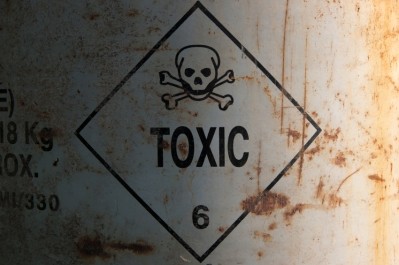Proposals for stricter dioxin controls, Germany discovers tainted pork
Danish authorities also confirmed that eggs from animals exposed to feed containing illegally high dioxin levels could have been used in liquid egg production destined for the food processing industry. But a food ministry spokesman told FoodProductionDaily.com that the levels of dioxins present posed no immediate health threat to consumers even if the products were eaten.
Contaminated meat
German authorities said the slaughter of hundreds of pigs had been ordered after high levels of dioxin had been found in pork for the first time since it notified the European Commission on 28 December that thousands of tons of dioxin-contaminated animal feed had reached the market. Until now, only eggs tainted with the chemical had been discovered.
"A test on the meat has shown high levels of dioxin content," Gert Hahne, a spokesman for the agriculture ministry in the state of Lower Saxony, told AFP. "The animals must be slaughtered and will then be incinerated."
But the spokesman stressed that no pork had reached the food chain and that all but 490 of the 4,700 farms affected have already been given the green light to re-open.
China also announced Tuesday that it had suspended pork and egg imports from Germany. Shipments that are already on the way and arrive after 11 January would be tested for dioxin, said General Administration of Quality Supervision, Inspection and Quarantine. This follows a similar move by South Korea earlier this week.
Dioxin testing protocol
FEFAC, the European feed manufacturer trade body, unveiled what it described as two-pillar dioxin testing protocol in a bid to tighten up procedures and prevent a reoccurrence of a scandal that has caused some to question the efficacy of EU food and feed safety controls.
The proposals were tabled a week after it emerged that feed produced by Harles & Jentzsch was found to contain dioxin. The German company incorrectly mixed fatty acids meant to be used for technical purposes such as paper processing, with vegetable feed fat.
Patrick Vanden Avenne, FEFAC president, announced it would submit a testing protocol for a structured dioxin monitoring plan of the feed fat supply chain at EU level before the end of the month. The second pillar would see a review of the approval requirements for fat blending businesses under the EU Feed Hygiene Regulation (EC) No 183/2005.
“Although the German authorities consider fraud at the fat blending plant which mixed technical fats in feed fats as the most plausible road of the contamination, we, as customers, must take all necessary and effective action which can help preventing such incidents in the future”, he said. “In our view, this would require a combination of an industry-own structured monitoring plan and specific legal requirements for the approval of fat blending plants, which currently only have to be registered under the EU Feed Hygiene Regulation”.









